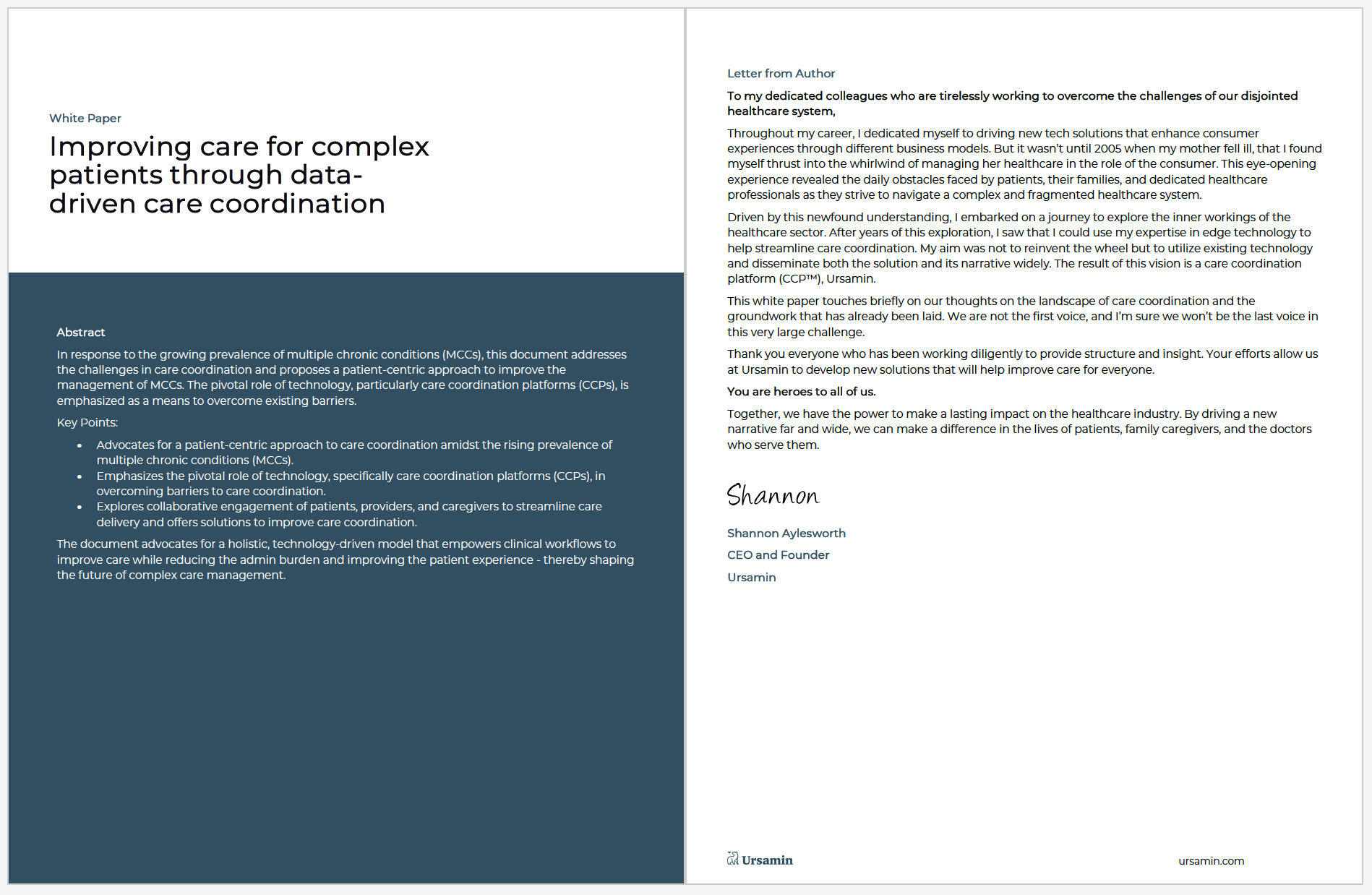Care coordination plays a crucial role in ensuring the delivery of high-quality and efficient healthcare services. It involves seamless collaboration and communication among healthcare providers, patients, and caregivers to ensure that the right care is delivered at the right time – and in the most effective manner. Care coordination is particularly important for patients with complex healthcare needs, as it helps to prevent fragmented care, reduce medical errors, and improve patient outcomes.
Working Together in a Multidisciplinary Approach
Effective care coordination requires a multidisciplinary approach. Meaning, it needs to involve healthcare professionals from various specialties working together to develop a comprehensive care plan that addresses the patient’s physical, mental, and social needs. This collaborative effort ensures that all healthcare providers involved in the patient’s care have access to the necessary information, enabling them to make informed decisions and provide coordinated care. Additionally, care coordination helps to streamline transitions of care, such as hospital-to-home or primary care-to-specialty care transitions, reducing the risk of adverse events and improving patient satisfaction.
Unfortunately, care coordination in healthcare faces multiple challenges that prevent widespread implementation. A fragmented healthcare system exists despite the tools for interoperability. Due to liability and risk concerns associated with the current tools, providers still use fax as a main form of communication.
The Juggling Act of a Dozen Care Plans
As a result, there is still insufficient communication among providers and limited patient engagement. Patients often face the daunting reality of coordinating care across multiple specialists, with an average of 14 different doctors involved in their care. This results in an overwhelming juggling act, as these patients attempt to decipher and harmonize over a dozen care plans. Unfortunately, these patients are frequently left feeling bewildered, as healthcare providers’ portals often go unanswered.
In this type of fragmented environment, patients often resort to the Internet to educate themselves. For example, social media offers a broad platform to reach a diverse audience and bridge the information gap in patient education. Healthcare professionals have been known to encourage patients to utilize social media if they want to conduct additional research on their medical conditions.
As the options for media continue to expand, the volume of content that exists to individuals seeking medical information online can be overwhelming. It also leaves people swimming in a sea of biased content. Care coordination is our way of guiding patients through this and pointing them to the right information. When patients get their health information straight from the source (the provider), they can ensure it’s not just credible but exactly what they need.
Overview of AHRQ’s eCare Plan Study
The Agency for Healthcare Research and Quality (AHRQ) has been at the forefront of research on care coordination in healthcare. One of its recent studies, the eCare Plan Study, explore the use of electronic care plans in improving care coordination for patients with complex healthcare needs. The study focused on the development and implementation of an electronic care plan tool that facilitates communication and collaboration among healthcare providers, patients, and caregivers.
The eCare Plan tool is designed to enable real-time, secure, and standardized information exchange, allowing healthcare providers to access and update patient care plans at any point in the care continuum. It includes features such as:
– medication reconciliation
– care team communication
– patient education materials
– care plan reminders
The study evaluated the impact of the eCare Plan tool on care coordination, patient outcomes, and healthcare utilization through a series of pilot implementations in diverse healthcare settings.
Key Lessons Learned in Care Coordination
The eCare Plan Study uncovered several key lessons that can inform the development and implementation of effective care coordination strategies.
- The importance of strong leadership and organizational support in promoting care coordination. Effective care coordination requires a cultural shift within healthcare organizations, with a focus on collaboration, communication, and accountability. Leaders must champion the importance of care coordination and provide the necessary resources and infrastructure to support its implementation.
- The need for interoperability and data standardization in healthcare information systems. Seamless information exchange is essential for care coordination, as it enables healthcare providers to access and share patient information across different settings. The eCare Plan tool’s use of standardized data elements and interoperable interfaces facilitated the integration of patient data from various sources, improving care coordination and reducing documentation burden.
- The significance of patient engagement in care coordination. Patients should be active participants in their healthcare journey, with access to their own care plans, educational materials, and communication channels with their care team. Engaging patients in care coordination helps to promote self-management, improve health literacy, and enhance patient satisfaction.
Future Directions in Care Coordination
The study demonstrated the potential of electronic care plans and care coordination platforms in enabling better care coordination, patient outcomes, and healthcare utilization. Additionally, the integration of artificial intelligence and predictive analytics can help identify high-risk patients who would benefit from care coordination interventions.
Policy initiatives and reimbursement models that incentivize care coordination are also essential in driving its widespread adoption. Healthcare organizations should collaborate with policymakers and payers to develop reimbursement mechanisms that value and recognize the efforts invested in care coordination. Aligning financial incentives with care coordination can encourage healthcare providers to invest in the necessary infrastructure, technology, and workforce to deliver coordinated care effectively.
The AHRQ’s eCare Plan Study sheds light on the key lessons in care coordination, emphasizing the importance of leadership support, data standardization, patient engagement, and technological advancements.
Discover strategies for improved outcomes and cost-effective healthcare for patients with complex diseases. Read next: Managing Polychronic Conditions: Strategies for Improved Outcomes and Reduced Healthcare Costs





